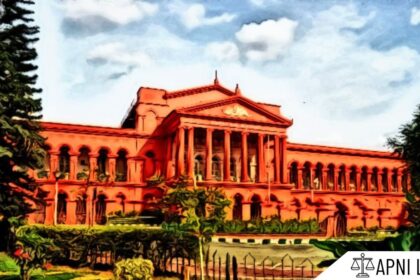The Patna High Court has ruled that under the Hindu Adoptions and Maintenance Act (HAMA), a father-in-law is not automatically liable to pay maintenance to his widowed daughter-in-law unless he has sufficient income from the coparceny property.
Court’s Ruling on Maintenance Liability
Justice Jitendra Kumar, presiding over the case, emphasized that Section 19 of HAMA makes the father-in-law’s liability conditional upon income from coparcenary property. The petitioners argued that no such property existed and that the only asset was a joint residential house where the complainant was free to reside. They also highlighted that the father-in-law was a pensioner with no additional means to provide maintenance. Furthermore, the court reaffirmed that a mother-in-law has no legal obligation to support her widowed daughter-in-law.
Case Background
Section 19(1) of HAMA states that a widowed daughter-in-law is entitled to maintenance if she lacks personal income or property and cannot obtain support from her late husband’s estate, her parents, or her children. However, Section 19(2) limits this obligation to instances where the father-in-law has the financial means derived from coparcenary property. Additionally, this obligation ceases if the widow remarries.
The case arose from a Criminal Revision petition challenging a Sessions Court order that directed both the father-in-law and mother-in-law of Puja Kumari to pay her Rs. 5,000 per month in maintenance. Initially, Kumari sought a protection order, residence, and maintenance from her husband, in-laws, and other relatives. In 2017, a magistrate directed the respondents to provide her maintenance and residence. After her husband’s death during the appeal process, the Sessions Court modified the order, making only her in-laws liable for maintenance.
High Court Overturns Sessions Court Order
The petitioners challenged this decision, arguing that under HAMA, only a father-in-law may be liable, and only if he possesses sufficient coparcenary property. They also contended that the father-in-law’s limited financial means made it impossible to fulfill the maintenance order. The High Court agreed, stating that the Sessions Court had misapplied the law.
Justice Kumar noted that the original maintenance order wrongly included multiple family members as liable parties, despite legal provisions specifying only the husband or father-in-law under certain conditions. The court further clarified that a father-in-law’s liability is not automatic and must be established based on legal criteria.
Case Remanded for Reconsideration
The High Court set aside the maintenance order and remanded the case to the Additional Chief Judicial Magistrate (ACJM), Munger, for reconsideration based on evidence regarding the widow’s entitlement to maintenance. However, the protection and residence orders in Kumari’s favor remained intact, ensuring her right to reside in the joint family home.
This ruling reinforces the conditional nature of a father-in-law’s obligation under HAMA and provides clarity on maintenance rights for widowed daughters-in-law in India.









